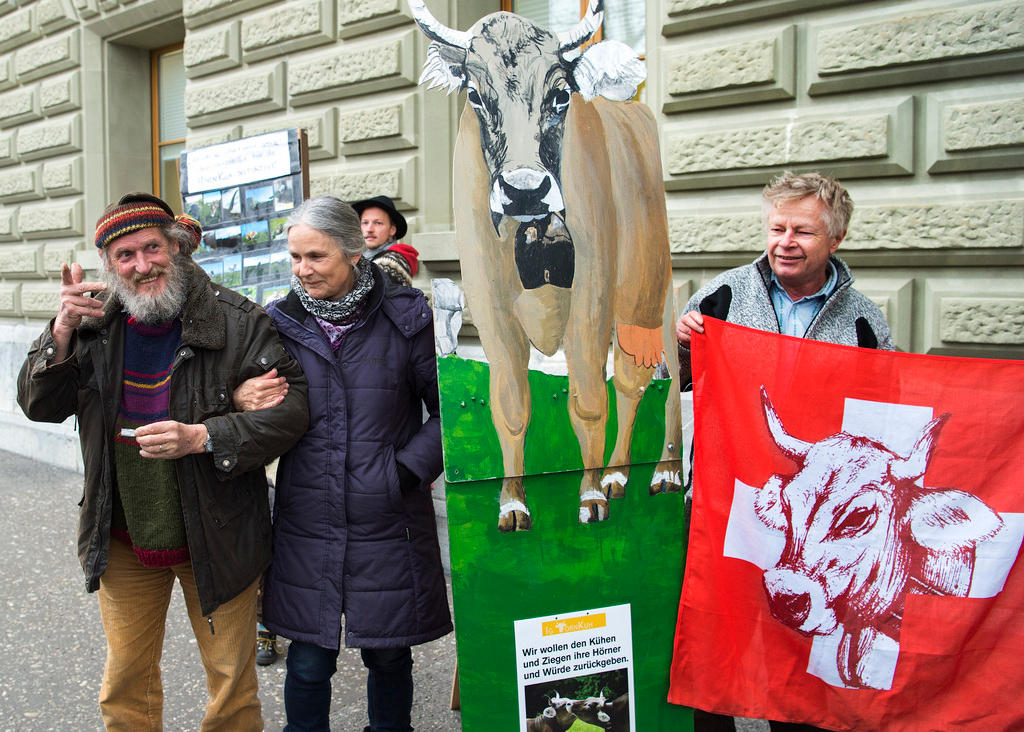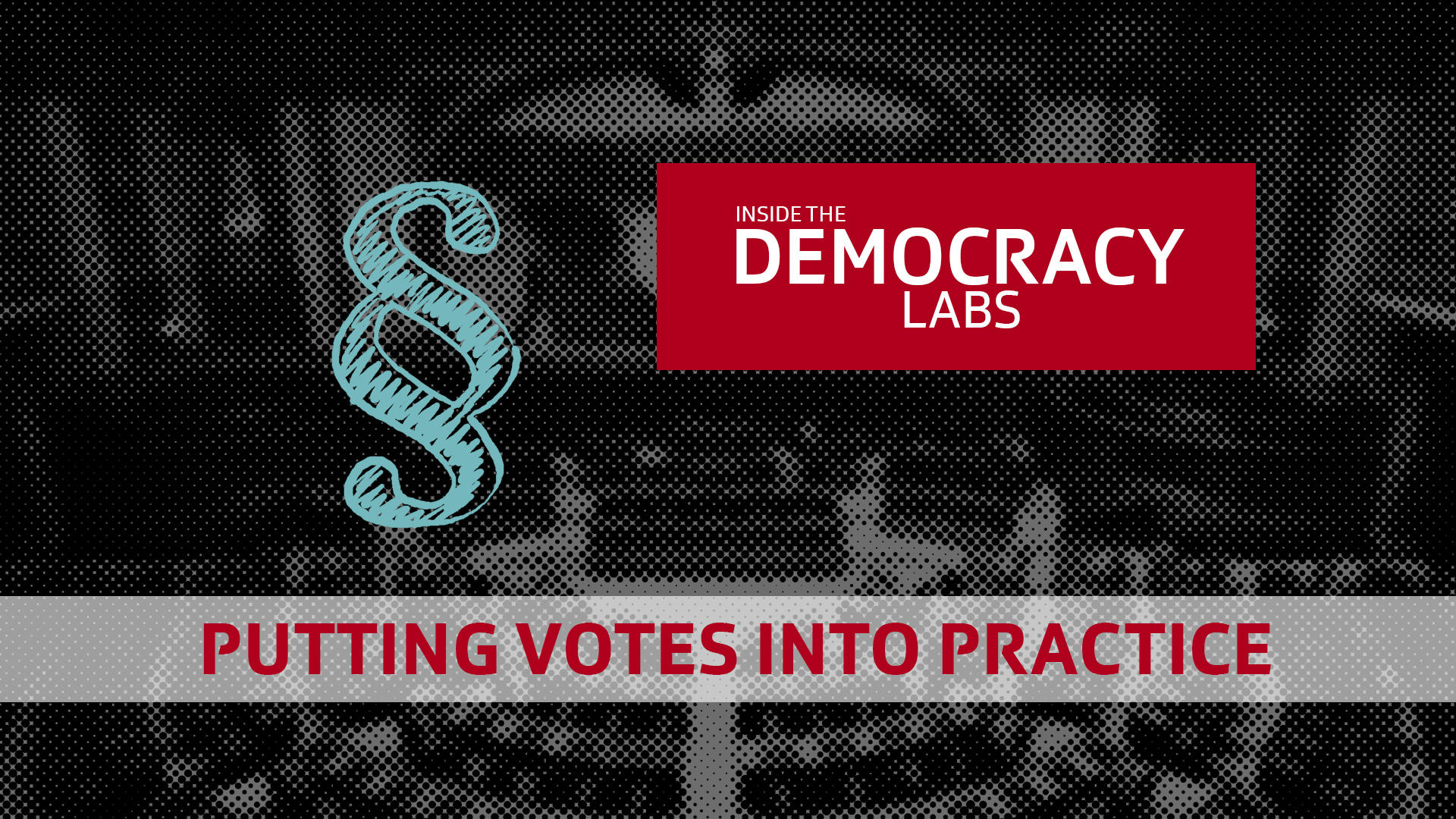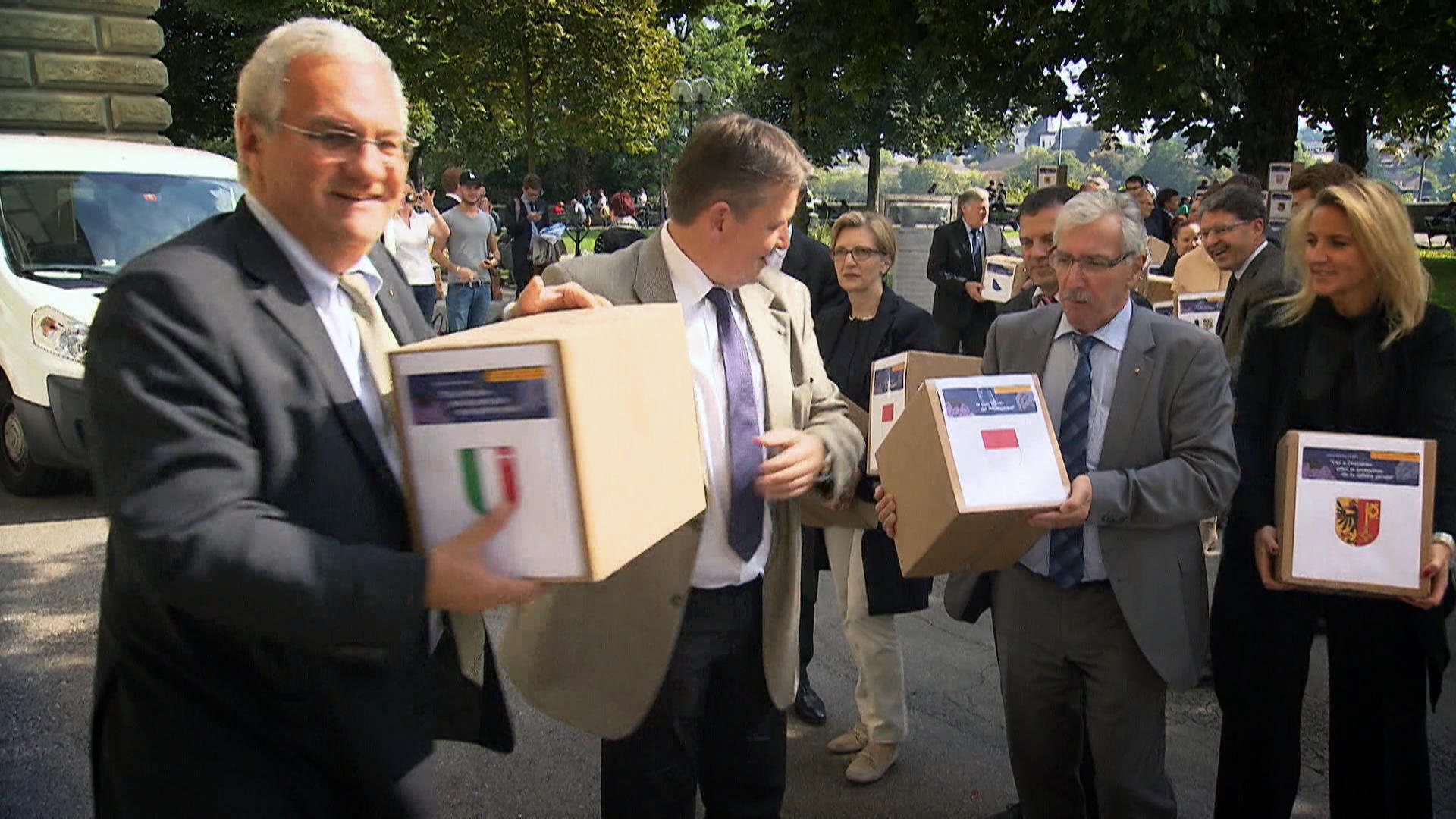The four ingredients of a successful people’s initiative

The people’s initiative is the fundamental instrument of Swiss direct democracy, but a number of invisible hurdles complicate its outcome. What’s needed to make an initiative successful?
This text is part of #DearDemocracy, a platform on direct democracy issues, by swissinfo.ch.
A people’s initiative allows citizens to put an idea on any topic to national vote, as long as they collect the requisite 100,000 signatures within a period of 18 months.
But from the original idea to the final vote is a long and challenging road, and scant few have been voted through in recent years. So, what makes for a successful initiative?
People who have launched their own, constitutional lawyers, and professional campaigners met to discuss the question at a public event in Zurich. Here are their four key takeaways.
1. It all begins with an idea
The most important ingredient comes at the beginning of the process: a bright idea which is based on a deep conviction and which will appeal to people. It also requires chutzpah, creativity, idealism, a willingness to make sacrifices, and plenty of stamina.
Such a fire of conviction burned in Armin Capaul, who started the ‘cow-horn’ initiative that will come to nationwide vote on November 25. The cheerful and talkative Alpine farmer with long beard and woolly checked cap explained to the urban audience that a people’s initiative had actually never been his intention. But government and politicians wouldn’t listen to his arguments, he said. For lack of another option, he decided on the spur of the moment to launch a campaign.
2. A good network of supporters
The Federal Chancellery told the crusading farmer that he wouldn’t be able to achieve his goal on his own, but would need to recruit a committee consisting of 7 to 27 eligible voters. So he travelled around the country looking for like-minded people, until he had put together a diverse group of 16 people from 15 different cantons.
A reliable and hardworking bunch like this is crucial for launching an initiative. Behind the scenes there is a great deal of skilled and mostly voluntary work to be done, and this needs manpower: drafting the proposed constitutional amendment, collecting signatures, holding events, internal and external networking, developing plans, media work, taking part in town hall meetings and so on.
Daniel Straub, who started the initiative for a unconditional basic income, built such a network. Without this kind of “initiative management” at the core of the movement, he would have been lost right at the start, he said. He held these people close to himself and looked after them like a family, he told the Zurich meeting.
3. Professionalism, not just a dream
If you have collected the necessary 100,000 signatures within an 18-month period and the last vote has gone through Parliament, you are ready to start your campaign.
Communications consultant Andreas Hugi of the furrerhugi* agency points out the importance of a professionally-conducted campaign. You need public communication professionals, he says. What works with people is simple and moving stories, emotions instead of appeals to reason. The story also needs a hero that voters can identify with (such as Capaul in the role of “David versus Goliath”).
4. Without money, nothing works
If you decide to launch a people’s initiative, you are also taking a financial risk. Straub of the basic income campaign had to raid his own pension fund to pay for the initiative. The entire initiative cost about CHF1,000,000 ($1,007,600) in total, he said.
Cow-horn campaigner Capaul had to dip into his savings, as well as his wife’s. He has contributed CHF55,000 to the initiative costs, most of it going towards the gathering of signatures.
You can make a difference as an individual
What is the moral of the story? Launching a people’s initiative is not a simple matter. If you go this route, you may find yourself investing a great deal with no guarantee of success. Yet Capaul’s case in particular shows that it is not just an “abstract” right. As an individual, you are not powerless. If it’s really important to you, you have the opportunity to campaign for a constitutional amendment. And who knows – maybe you will succeed. There is nothing more powerful than an idea whose time has come.
People’s right no. 1
The people’s initiative is the jewel in the crown of Swiss direct democracy. Its successes have, however, been few and far between. Many initiatives fail even at the signature-gathering phase, and out of the constitutional amendment proposals that do get through, only about every tenth is actually passed by the voters nationwide and in the cantons. This chart reveals a sobering reality:
*Disclaimer: the furrerhugi agency frequently manages campaigns for the Swiss Broadcasting Corporation (SBC), of which swissinfo.ch is a part.
The meeting on “the right to a people’s initiative” in the Kunsthalle, the modern art exhibition centre in Zurich, was part of a knowledge festival called “100 Ways of ThinkingExternal link”.
This series of events is a coproduction of Zurich University and the Kunsthalle Zurich. At each event, people working in the arts and sciences join an interested audience in exploring the various forms and effects of human thinking.

More
What’s a people’s or citizens’ initiative?
Translated from German by Terence MacNamee, swissinfo.ch

In compliance with the JTI standards
More: SWI swissinfo.ch certified by the Journalism Trust Initiative



You can find an overview of ongoing debates with our journalists here. Please join us!
If you want to start a conversation about a topic raised in this article or want to report factual errors, email us at english@swissinfo.ch.